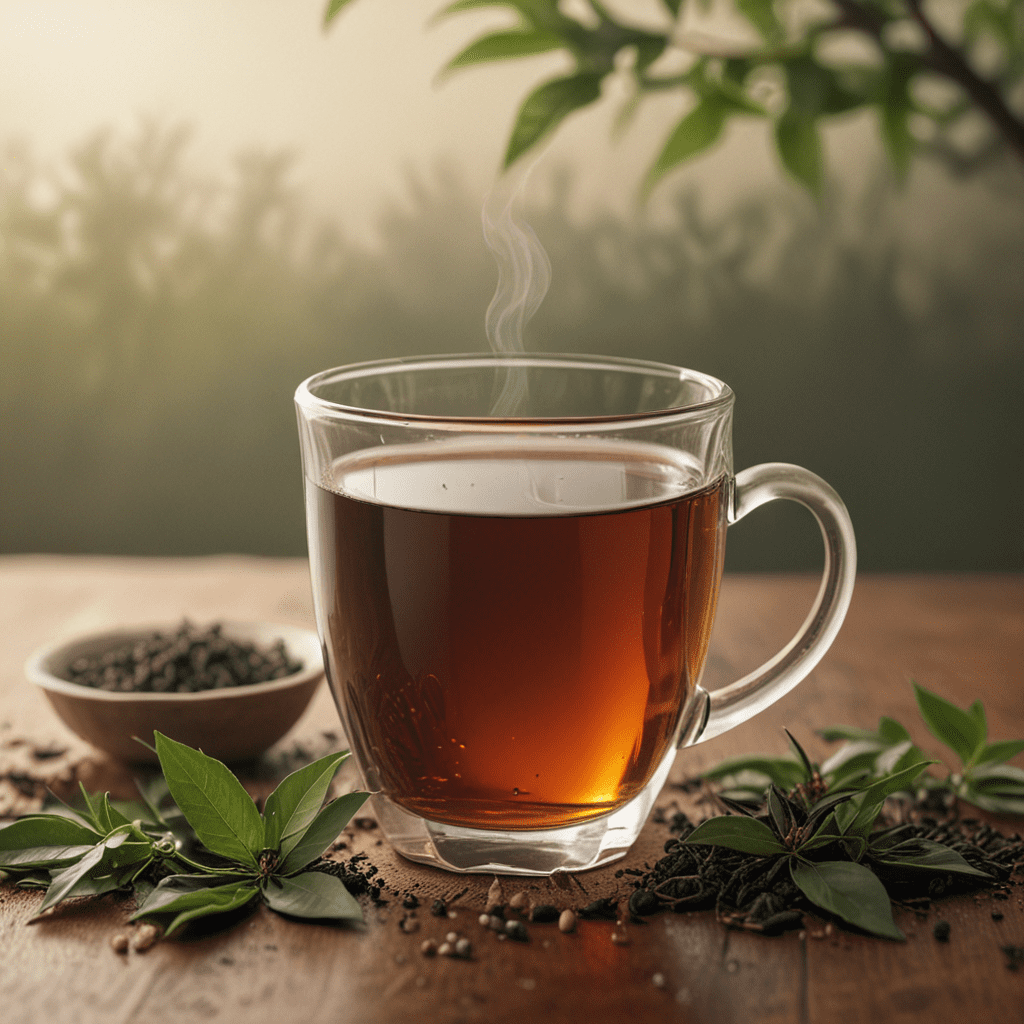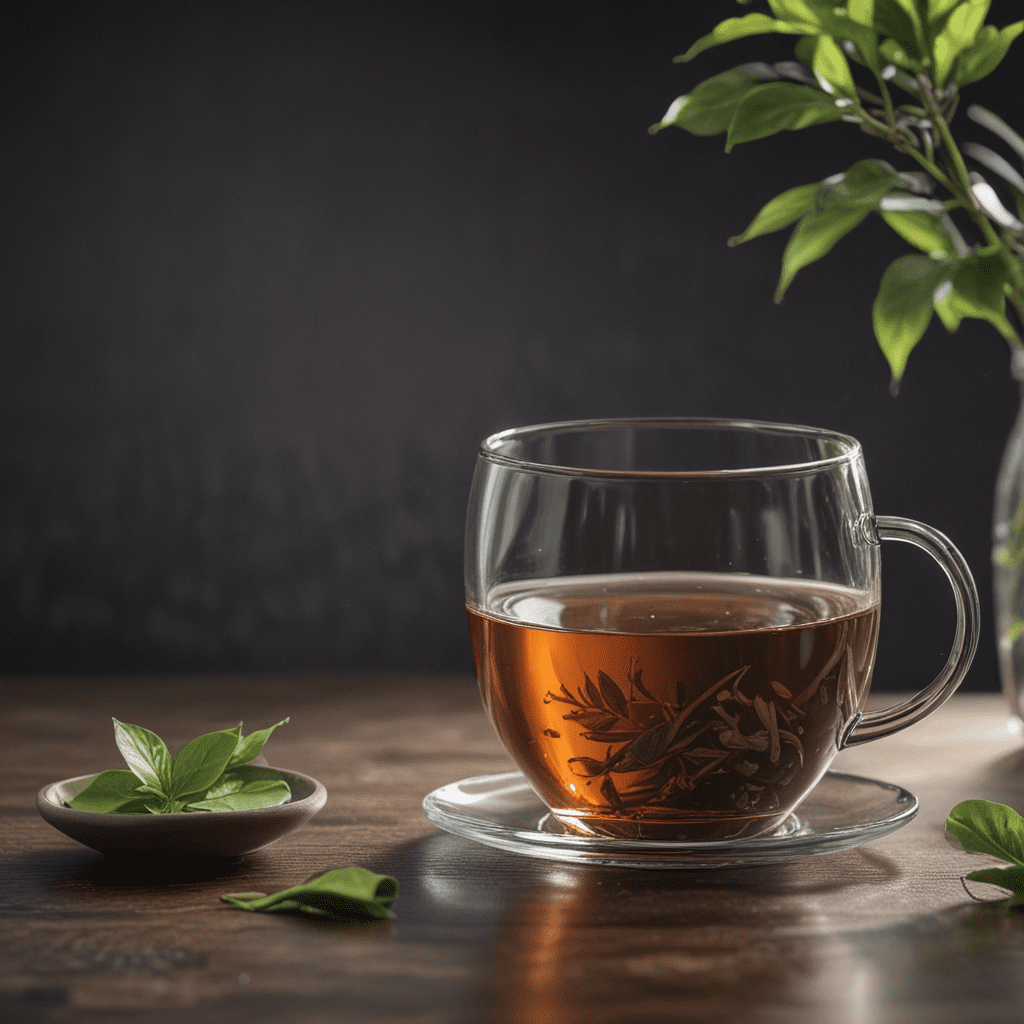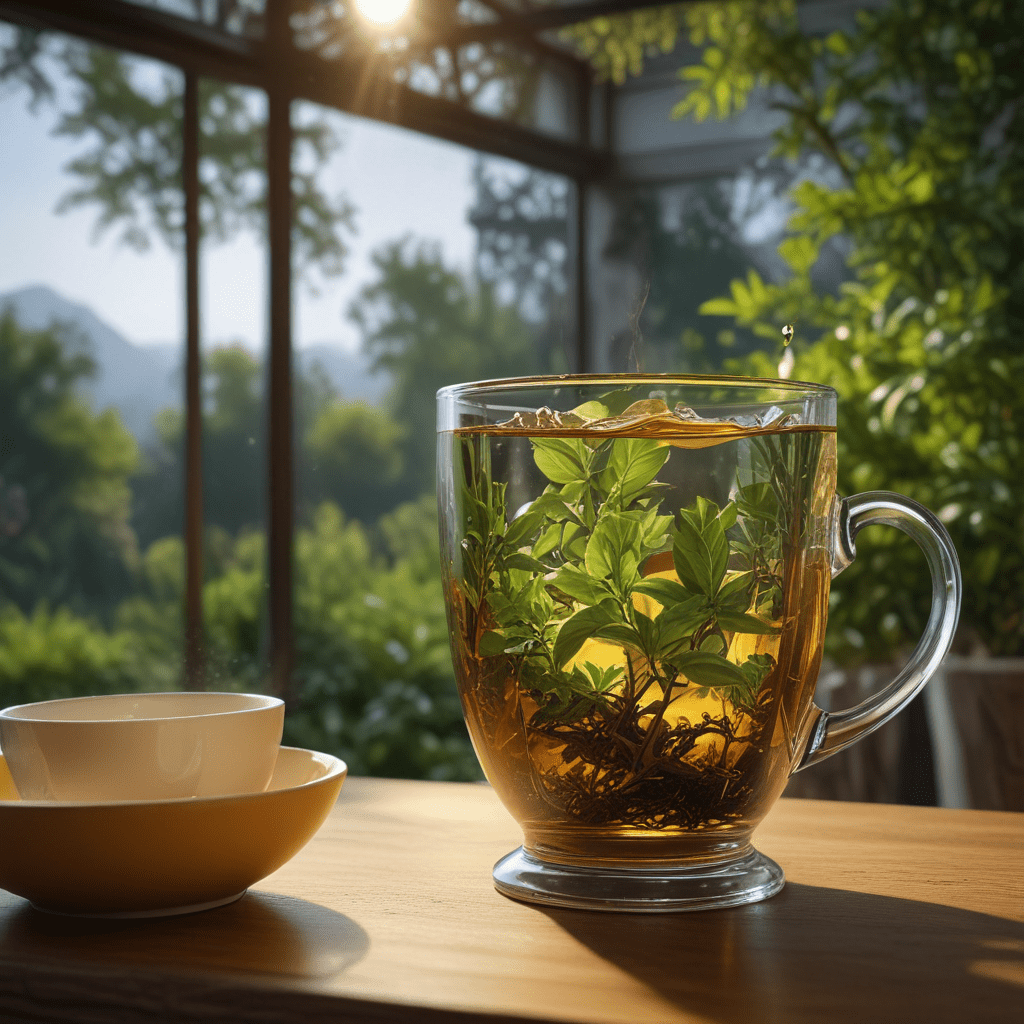Assam Tea: The Perfect Cup of Serenity
Introduction
Assam tea, renowned for its robust flavor and invigorating aroma, is a beloved beverage that has captured the hearts of tea enthusiasts worldwide. Grown in the lush, sun-drenched plains of the Assam region in India, this exceptional tea offers an unparalleled sensory experience that transcends mere refreshment. Assam tea, steeped in history and tradition, embodies the essence of serenity and rejuvenation, making it the perfect choice for those seeking a moment of tranquility and revitalization.
History of Assam Tea
The origins of Assam tea can be traced back to the 19th century, when British colonialists discovered wild tea plants growing abundantly in the Assam region. Recognizing the immense potential of these plants, they began cultivating and processing tea on a large scale, marking the advent of the global tea industry. Today, Assam tea remains one of the most popular and widely consumed teas in the world, celebrated for its distinctive qualities and unparalleled taste.
Cultivation and Harvesting
Assam tea is meticulously cultivated in the fertile Brahmaputra Valley, where ideal climatic conditions and rich soil provide the perfect environment for tea plants to thrive. The warm and humid climate, coupled with ample rainfall, nurtures the tea bushes, resulting in a bountiful harvest of high-quality leaves. Skilled tea pluckers meticulously handpick the tender, young leaves, ensuring the utmost freshness and flavor in every cup.
Varieties of Assam Tea
Within the diverse realm of Assam tea, there exists a spectrum of varieties, each boasting its own unique characteristics. CTC (Crush, Tear, Curl) teas, known for their robust flavor and full-bodied character, are particularly popular. Orthodox teas, crafted using a traditional method that emphasizes oxidation and rolling, showcase a nuanced and complex flavor profile. Additionally, specialty teas such as golden tips and silver tips offer a rare and exquisite experience, characterized by their delicate aroma and subtle sweetness.
6. Preparation and Serving
To fully appreciate the exquisite flavors of Assam tea, meticulous preparation is paramount. Traditionally, Assam tea is brewed in a teapot using loose leaves. The optimal water temperature is between 95-100 degrees Celsius (203-212 degrees Fahrenheit). Steep the tea leaves for 3-5 minutes, depending on the desired strength. Once brewed, Assam tea can be enjoyed on its own or complemented with milk and sugar to taste.
7. Rituals and Traditions Surrounding Assam Tea
In Assam, tea holds a deeply significant cultural and social status. The traditional tea ceremony known as 'naam' is an integral part of Assamese hospitality and community gatherings. During naam, tea is served in small, earthen cups called 'borxo,' accompanied by traditional Assamese snacks. The act of sharing tea fosters a sense of connection and warmth, making it an essential aspect of Assamese culture.
8. Economic and Social Impact
Assam tea plays a pivotal role in the economic and social fabric of the region. The tea industry in Assam provides employment to millions of people, contributing significantly to the state's economy. Additionally, the tea gardens serve as vibrant communities, offering various social amenities such as healthcare, education, and housing. The tea industry in Assam has transformed the lives of countless individuals and families, fostering economic growth and social development.
9. Cultural Significance
Beyond its economic importance, Assam tea holds immense cultural significance in the region. It is deeply intertwined with the artistic expressions, folklore, and traditions of the Assamese people. Tea plantations serve as a picturesque backdrop for countless works of art and literature, capturing the essence of the idyllic Assamese landscape. The distinct flavor of Assam tea has become synonymous with the identity and heritage of the region, making it an integral part of Assamese culture.
10. Conclusion
Assam tea, with its captivating aroma and robust flavor, embodies the essence of tranquility and rejuvenation. Its rich history, diverse varieties, and profound cultural significance have cemented its place as a beloved beverage around the world. Assam tea is not merely a drink but an experience that transcends mere refreshment, inviting you to savor a moment of serenity and connect with the rich cultural heritage of the Assam region.
Frequently Asked Questions
Q: What makes Assam tea different from other teas?
A: Assam tea is distinguished by its robust flavor, full-bodied character, and malty notes. It is grown in the unique climatic conditions of the Assam region, which contribute to its distinctive qualities.
Q: How do I brew the perfect cup of Assam tea?
A: To brew Assam tea perfectly, use loose leaves and water heated to 95-100 degrees Celsius (203-212 degrees Fahrenheit). Steep the tea leaves for 3-5 minutes, depending on the desired strength.
Q: What is the cultural significance of Assam tea?
A: Assam tea is deeply ingrained in the culture of the Assam region. The traditional tea ceremony known as 'naam' holds great social and cultural importance, fostering a sense of community and hospitality.
Q: What are the health benefits of Assam tea?
A: Assam tea is rich in antioxidants, which can help protect against cellular damage. It also contains caffeine, which can boost alertness and improve cognitive function.
Q: How does Assam tea contribute to the local economy?
A: The Assam tea industry provides employment to millions of people and is a major contributor to the state's economy. The tea gardens serve as vibrant communities, offering various social amenities and contributing to the overall development of the region.



